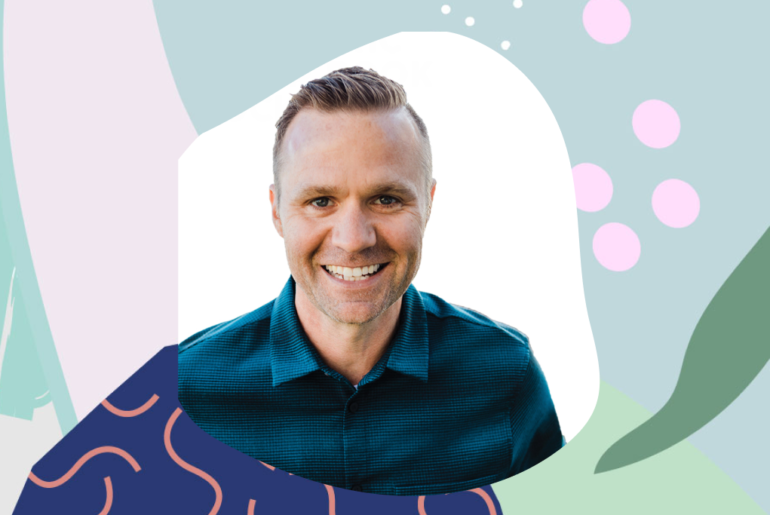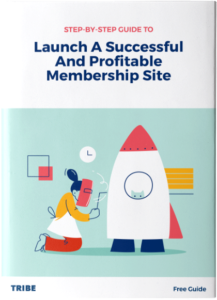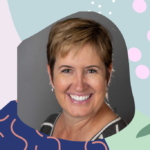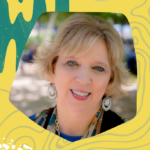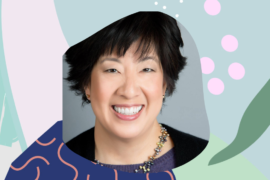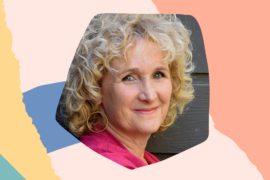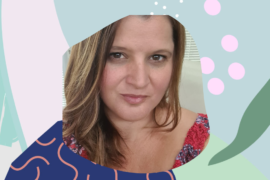Brian Dixon spent the first part of his professional life as a seventh-grade language arts teacher in Columbia, South Carolina. As he struggled to work with classrooms full of kids who couldn’t read, he learned lots of tips on how to be a teacher – and knew he needed to write a book. He did all the steps, but in the wrong order, and became a business coach while amassing over a dozen rejection letters.
Now, at Hope Writers, he encourages his members to get their message out by following the steps of the publishing process. He helps them engage their audiences and share meaningful words without sacrificing a meaningful life.
Today, Brian joins the podcast to share what he learned from his own experiences with rejection, how he helps people conquer their fears and become published authors, and the power of surrounding yourself with people who have common goals.
Key Takeaways
- How Brian got inspired to write his first books – and what he learned from the 17 times his books were rejected by publishers.
- How membership sites capture the energy and spirit of industry conferences year-round.
- How to get over the overwhelm that comes with dreaming up a book.
- The value of accountability groups.
- Why a book doesn’t have to stay a book to be a success.
Free Give
FREE Guide – Launch & Grow a Profitable Membership Site
Ready to reclaim your time and attract more monthly paying customers? Our step-by-step guide will show you how to build a membership site that turns your passion into recurring profit. Click here to download!
Memorable Quote
- “You have to heal before you reveal.” – Brian Dixon
Episode Resources
- Hope Writers
- Social Media for School Leaders by Brian Dixon
- Sublime Madness Productions
- Start with Your People by Brian Dixon
- Eat, Pray, Love by Elizabeth Gilbert
- Hope Writers Quiz
- Brian Dixon’s Website
Transcript
Read The TranscriptShelli Varela: Brian Dixon, welcome to the It’s a TRIBE Thing podcast. I’m so excited. Thank you for stopping by. It’s going to be amazing.
Brian Dixon: Are you kidding me? Like, I wish everyone knew about membership sites. So, the fact that we get to encourage people about their membership site today is so exciting.
Shelli Varela: Well, typically, the people that have membership site or somebody in the area of coaches, authors, speakers, entrepreneurs, and I happen to know because I work with these people myself, that many of them, I won’t say all of them, but if you take all of them, and they just quarter turn that back a little bit, that many people have a book in them, and you help people write the book. So, we’re going to dive into that. I know that there’s going to be lots of juicy tidbits that people are going to want to lean forward and listen to, like you said, because everybody has a book in them, and you’re the guy to help them do that. So, would you be so kind to start with who you were before you were the guy who has a membership site, who has it all figured out, who’s doing the thing? Who were you just before you realized it was possible to have a membership site? And what led you to what you were doing now?
Brian Dixon: There are so many ways to kind of go into the story, but I want to back all the way up to when I was a teacher, my first major profession was being a classroom teacher. And there was teaching as a seventh-grade language arts teacher in Columbia, South Carolina, which is South Carolina’s not necessarily known for its high level of academic rigor, especially for those non-Americans listening right now. It’s in the south, and the school that I was working at, the seventh-grade kids I was working with, most of them couldn’t read. And it was a really challenging time. And I was in my early 20s, and it was then I realized, at the end of a really hard day of work, that I had learned a lot that day of just tips on being a teacher, I’m like, oh, if only I knew this. And that was the beginning of wanting to write a book.
And I remember trying to figure out like, how do I get a book? Like how do I actually write a book? And so, it goes all the way back from there. And I often share this, your mess is your message. I probably heard this from Stu a long time ago, but like each of us have some sort of mess that we dealt with. Maybe it was a relationship breakup, maybe it was a career difficulty, which is like I’m raising my hand. That was it for me. I had no idea about classroom management, connecting to the heart of my kids, like I would never have known that a key to being a really good classroom teacher is connecting to the heart of your students. Nobody taught me that, but I figured that out through trial and error. And when we figure stuff out, we don’t want other people to experience all the pain that we had to go through in order to have the growth of the success or the results. And I think that’s where a book can really fit.
So, I started wanting to write a book years and years ago, like over 20 years ago. And Shelli, my top drawer, I keep it right over there, so I can always see it because it keeps me really humble. My top drawer, I have 17 rejection letters from publishers, because through the years of being a teacher, and then eventually, a classroom administrator, and then eventually, I started my own business, I would have these ideas for books. And I thought the way to get a book published is to just write your idea and like a letter, like a book proposal, and send it randomly. And then, one day, you’ll get lucky, you’ll win the book lottery. Some publishers will say, that’s a great idea, and publish your book. And I was doing all the right things, but in all the wrong order. I wasn’t building my audience, but I was engaging people. I wasn’t building an email list, I wasn’t really posting on social about the one thing I wanted to write my book about. So, I was kind of fumbling around and stumbling around trying to get a book published.
And over time, I became a business coach. That was my last job in education. I was actually the founder of a charter school, which we’d always talk more about getting anything off the ground is difficult, getting a charter school off the ground is really difficult, and through getting a charter school off the ground, I discovered Stu McLaren, and I discovered how much I love marketing. And all Stu’s friends, all their podcasts, I binge listened to them. And I discovered how to do marketing to get kids to come to our school. And so, after running the school for about four years, I realized, I launched this product, like I launched this school and obviously, it wasn’t just me, it was the whole team, but I wanted to keep launching things. So, that’s why I went off on my own to start my business, and I thought my business was going to be helping other authors launch their books, because there wasn’t a great step-by-step process of how do you get your book out? How do you build your audience, connect to the publisher, work through all of the hard terrible things about writing a book, because it’s not the easiest thing in the world? And then, how do you actually sell copies of your book?
So, in all of that, I started speaking at conferences about marketing strategy. And I remember this moment of going to this conference I really liked, and saying, it was so sad, it was this real melancholy bittersweet moment of driving away from the conference, and realizing that I’m not going to be able to experience this for another year. And most of the people that are coming to the conference this year might not come next year. So, it was like this magical unicorn three-day of really connecting to other people who are just as weird as me. They love talking about writing and speaking and marketing, and we all get together to be weird together for like three days, and that’s it. And I realized then, after attending this conference that, what if we were to have some sort of a way to have a conference every day? And that’s where I discovered the power of membership sites.
So, the second year I attended this conference, actually partner with two of the other speakers and their dad, and the four of us total, but myself and his two sisters and their dad, we started this thing called Hope Writers, where essentially the model was, we’re going to interview the speakers at the conference to talk about writing and publishing, and we’re just going to share one interview a week in our member community, and we’re going to have a week-long conversation about that topic. And each and every week, we’ll have a new guest expert, and we’ll have a conversation about that topic. It’s like a way to have a writing conference throughout the whole year.
We’ll charge about what it costs for one writing conference, but for the whole year. And so, that’s kind of where Hope Writers was born. It was over five and a half years ago now. And that’s what I get to do now is encourage people to get their message out, to follow the steps of the publishing process, to really engage their audience, because I believe that you can share meaningful words without having to sacrifice your meaningful life, that you can actually do both. And that’s what Hope Writers is all about.
Shelli Varela: So powerful. And I am going to dig in and ask you so many questions.
Brian Dixon: Let’s do it.
Shelli Varela: Because so many people I know have a book in them, and have a book in them that will not only serve their life, reach their people, but also serve their business. And typically, this is what I hear, I hear people acknowledging fully that yes, I have a book, I’m going to do a book, but conveniently, the doing the book, the writing the book is always like just over there. And I feel like the reason it’s just over there is because they don’t want to let go of the hope of it. Hence the name, Hope Writers, that’s brilliant, but they don’t want to let go of the hope of letting go of that book, but yet still, the thought of writing a book, the thought of how do I write a book? What stories do I tell? How do I tell the stories? Am I teaching? Or is it a memoir? The overwhelm of like, what are the steps, where do I start, who do I go, what are the chances, do I get published, do I self-publish, do I have an audience, and how do I market it causes them to come to an absolute grinding halt.
So, no surprise, whatsoever, the enthusiasm for having a book that’s over there never wanes, but they also usually don’t get any closer to it. Can you talk about right out of the gate from the starting point when somebody says, okay, there are probably, I don’t know, eight, five, however many steps for me to go from idea to published author, whether it be self-published or get a publishing deal? One of the biggest hurdles I hear right out of the gate is how do I do this emotional excavation that is going to be required to do the book, and then just the overwhelm that comes along with that. There are many people in this community and listening to this podcast right now that are in this exact position. What advice would you give them in terms of getting started?
Brian Dixon: That’s right, okay, I got a little tough love, but now it’s coming from a place of encouragement and support, but it’s a bit of a command. So, here we go. Stop writing alone. I see this happen all the time, first-time authors are writing alone in two ways. Number one is they’re not telling anybody that they dream of writing. And so, their significant other has no idea that they really want to write a book, their best friend doesn’t even know that they want to write a book. So, like, tell other people that this is something that you want to do. So, share that dream because when you start to share your dream of wanting to have a book published, it’s that reticular activating system, right? People start to recognize that out in the world, and so often, it’s not the members of Hope Writers that first discovered Hope Writers. As good as we are at Facebook ads, it’s not always our Facebook ad that found the right person. We found their sister or we found their husband or we found their spouse or their significant other first, and they said, “Wait a second. That’s not for me. That’s for Shelli.” And so, you got to tell people, you got to get people to be your dream cheerleaders, that they’re cheering on your dream. So, you got to share your dream with other people because writing alone, it can be very lonely, but you also don’t make a lot of progress. That’s one way to not write alone, is just tell your friends, tell your significant other about your writing dream.
But number two, is to have some sort of an accountability group. And I know people don’t love the word accountability group, we call it hope circle in Hope Writers. Hope circle is a lot more friendly. Have a group of other writers who kind of have a similar dream because as much as you love the idea of writing and publishing, maybe having your book in a bookstore one day, that’s kind of weird for most people. And so, for you to have not just dream cheerleaders, but other journeyers on the dream, and so, what we do in Hope Writers is we have a member directory, and you can find other people in your local area.
We have almost 4000 members around the world. So, you can find somebody in your local area, or find somebody who writes poetry, and you write poetry. And you can connect and have a Voxer group or a Marco Polo channel or a Clubhouse room, or like there’s a way, Zoom meeting for you to connect with other writers. And then that way, when you’re feeling super discouraged, and you want to give up, they’re picking you up. And when you’re feeling really charged, and they’re falling on their face, you can pick them up. And that’s really the power of something like Hope Writers, a community, is because we don’t let each other quit because we know when writers make progress, they don’t quit. And when they don’t quit, their message doesn’t stay hidden, but their message gets out.
And I really believe that what you’ve been through, this is for you listening right now, you’re like, do I have a book in me? Absolutely, you do because you’ve been through something that you would never want to go through again, but there’s somebody right now going through that right now. And I get a little teary just thinking about it because I know the stories of our members. I know the members who have had their spouse or the significant other cheat on them, or had secret debt, or some big scandal that came out, and they didn’t know how to deal with it, but then they found a book that helped them, or there were those business dreams that never came true, but then they found a book that helped them make progress. And I know that books can change the world, right ideas can change the world. And some of those ideas are living in your head or in your memory, and to be able to get them out to encourage other people is I believe why I’m here, I mean, to help other people make progress and to move forward in their dream and to get past stuck is really what Hope Writers is all about.
Shelli Varela: That’s so beautiful. My heritage is Native American. We have this thing that we call your original medicine. And the idea is, it’s that one sacred gift that is intangible, and it’s only yours. And if you do not share it, it will be lost for all times. So, people, nobody will ever benefit, nobody can replicate it, it can’t be duplicated, it’s yours, it’s your gift to give. And if you don’t give it, your unique gift in your unique way, it will be lost for all time.
And the other thing we also have is a talking stick. It’s the idea, if you’re sitting in a circle, whoever is holding the talking stick holds the floor, they hold everybody’s attention. And everybody has to sit and listen until the person passes the stick. So, everybody gets that chance to be heard. And what I love about that is to your point, and what you’re doing, is you’re allowing people to hold the talking stick by having that book, by being able to share their original medicine, by being able to get their gift out into the world in a way where they can’t get talked over, where they can’t get interrupted, where people can hear their thought and their heart and their journey from the beginning until the end, because oftentimes, it’s usually not the wisest person that gets heard, it’s the loudest person, and usually the loudest person is not the wisest person. So, for those of you who are sitting on a book idea, it’s one of the best ways, it’s an introvert’s dream because it allows you to get your gifts out into the world in the way that you can share your gift because somebody out there is waiting to receive it.
Brian Dixon: I love that.
Shelli Varela: One of the things you talked about that I deeply resonated with was the idea of support. And I know many people know my story. I was a 108-pound manicurist and had a dream of becoming a firefighter. And as you can imagine the journey of a 108-pound manicurist as she says her dream out loud, was met with like, what are you talking about? Like, let’s go to the bar this weekend. I’m like, no, I can’t, I have to work overtime, so I can kind of cut apart a car or learn about rescue or whatever. So, whenever I would tell my dreams to the wrong people, and they were the wrong people because they didn’t understand my vision because it wasn’t theirs, but never I would say my dream as a 108-pound manicurist to these people who are my girlfriends, my friends, they would think I was crazy.
And what happens is it starts to drain your confidence, and it causes self-doubt. However, when I started taking fire courses and aligning with people who believed what I believed, knew what I knew, and was going where I was going, to your point, all of the difficulty immediately disappeared, because when I would say to those people, “I can’t join you guys on the weekend because I’m working overtime, so I can take this course.” They would say, “Of course.” And also, there’s this other course. So, it just magnified the beauty and the momentum of what I was already creating, and it allowed me to stay in the confidence of that, just like it sounds like you do for your Hope Writers, like if most people will have a dream or share the dream of being a writer, and people are like, oh, do you know how hard it is to get published?
Brian Dixon: That’s right.
Shelli Varela: And also, do you know that people get published every single day?
Brian Dixon: Every day, and there’s a lot of ways to get published, too. And even some of that publishing isn’t a book, like we’ve seen members that thought they were working on a book, and it turned into a movie, it turned into a movie script, or they thought they were working on a book and it turned into a membership site or an online course or a conference, or just a really great engaged Instagram following with one-on-one coaching on the back end. Like there’s all kinds of ways to be a writer in our world, and it doesn’t mean having some sort of publisher pick you, although that’s often the dream, is getting a book deal and having your book in a bookstore, and it’s always fun to see one of our members, like, posted a picture of they’re signing their contract, or they’re holding up their book in the bookstore. Like, it always makes my day when I see that.
And it’s pretty frequent now in Hope Writers, but that was my dream for a really long time, and it took a really long time. I think it was 11 years after I initially had that dream of publishing a book that I did get my first book deal, and it was a niche. It was a book called Social Media for School Leaders. It was all about, like helping teachers and school leaders understand what LinkedIn was, and understand what Twitter was. And it wasn’t necessarily my dream book, but it was my first book. And the fun thing is, yeah, like you’re saying, Shelli, you’ve got to surround yourself with people who when you share your dream with them, they don’t say, why? They say, how can I help? How can I help you make that real?
Shelli Varela: Yeah. Seth Godin has a phrase, it’s like people like us do things like this.
Brian Dixon: Oh, that’s good.
Shelli Varela: And people like us get books published. That’s what people like us do. And it just becomes so normalized, right? And you talked earlier about the reticular activating system, the idea that you find what you focus on. And the truth is, if you’re focusing on and you’re normalizing, getting published or getting seen and being heard, that’s what becomes a reality for you because your retention goes with what you’re thinking about. I am absolutely obsessed with what you’re doing, I think it’s brilliant. I think it’s genius, because here’s the thing, like, it’s so much more than just writing and being seen and being heard, it allows people to feel hope and to feel like their experiences matter, and what they do matters. And I think that is one of the most beautiful parts of what you do. I’m interested to know, though, what is the best piece of feedback you’ve received from one of your members?
Brian Dixon: Oh, what is the best piece of feedback is to do whatever we can. So, this is specifically for like membership site owners in terms of like how for–
Shelli Varela: Yeah, do you have a member that just their story, when you heard their story, you’re like, this is why I do what I do.
Brian Dixon: Oh, yeah. Oh, yeah. So many. I think about Deb, and I’ve shared her story before, she’s giving me permission to share it. Deborah Wallace, I think it’s DeborahWallace.com. And Deborah was a pastor’s wife, real conservative. Husband was a pastor, and is real kind of a Bible kind of a guy, and she kind of had that light that people looked at her and said, oh, wow, like the Wallace’s have it all together. And it turns out that that he was actually having an affair with another man, and it blew her world apart. And so, they got divorced, and she really went through a period of depression and real identity crisis, like if she’s not a pastor’s wife, who is she?
And when she joined Hope Writers, I kid you not, her blog was sharing all kinds of random stuff, but her most recent post that I looked at was a brownie recipe. She was sharing this kind of glossy exterior in her writing, thinking like, that’s what I’ve got to do to attract my audience. And we got to meet her at a conference, and I leaned in, I said, “Deb, what’s your mess, because your mess is your message?” And she just went on to tell me about this really hard story of that betrayal and that broken relationship. And you know what I said to her was, “You’re not the only one.” And I think that’s what all of us writers need to understand is that you’re not the only one, and I don’t mean that to put down your story. I mean, that’s a prop up and build up your story because if you’re not the only one, there’s somebody who hasn’t had that realization yet. And that’s where you can find them, where they’re still stuck.
And so, Deborah leaned into writing about betrayal, generally, but specifically your spouse’s betrayal, and even into the story. And she wrote a book called When Your Prince Charming Finds Another Prince. Oh, my goodness, right? And like the amount of women that have come forward to say that happened to me, and I thought I was the only one, I was the shame of my small town in Alabama, like, I’m the only one. And I was ostracized from my community until I discovered your blog, and I realized that I’m not the only one. And that I have a story, my story is not all written, that I can still write my second chapter, my story. And what it does for us as authors, as speakers, as leaders, is that often means that we’ve got to get a little uncomfortable.
I have a book called start with your people, and it’s all about leaning into the people in our life because they see what we can to help us move forward. It’s hard to read our own label, but they can see you every day. They’ve seen me more than I’ve ever seen myself because I’ve only seen a reflection of myself, but my wife, my kids, my friends, they see my face every day. They know what I really look like. At the beginning of the book, I tell the story about doing a 360 assessment, where I sent out an anonymous survey to like tell me what’s Brian doing well at, and where it is Brian needs some help, or what’s Brian not doing well at. And the things that I read in there that were obvious to everybody else, but I had no idea about the way that I was burning bridges, about the way I was overtalking to other people and kind of being a little domineering. It was a slap in the face. And I didn’t want to tell that story in my book, I just wanted to give advice, but I didn’t want to share my mess, but I realized that as we share our story of struggle, we make a deeper connection to our reader. So, that’s the advice that I would share to anybody who wants to write a book.
Now, I do believe you have to heal before you reveal, that if you have a hard story, and you’re still going through that, that maybe you need some time or some counseling, or a really good friend to walk with you through that journey, but once you’re at a point where you can start to share it, it’s not wasted. Whatever you’ve been through in your life isn’t wasted, it can be redeemed to be used to help other people move forward.
Shelli Varela: Elizabeth Gilbert is a New York Times bestselling author, I think, for a year she was on the list.
Brian Dixon: She’s great.
Shelli Varela: She wrote Eat, Pray, Love. And she says, you should only ever speak from a scar but never a wound.
Brian Dixon: Oh, I love that. It’s good.
Shelli Varela: It’s brilliant. Do you have any parting words about somebody saying yes to their dream, if they’re right now sitting on the fence going, who am I to write a book, and who would care to listen?
Brian Dixon: Yeah, that’s a really good question. Absolutely. I think the one thing that I wish that I knew, and this applies to you, no matter what industry you’re in, no matter what your dream is, is to realize that there’s a process, and there really is no skipping. There’s no skipping the line, skipping the steps, that there is an order and there’s a process. So, at Hope Writers, we have a quiz, HopeWriters.com/quiz, and it just tells you where on the six stages are you. Are you stage one? Are you stage four? Like where are you in the process of writing and publishing your story. And in the same way, whatever it is, that’s your dream, even your dream of being a firefighter, there’s a process to building up that muscle and getting that training and probably getting classes and certification, and eventually getting hired or volunteer. There’s a whole process, but for some reason, as a beginner, we only see the last step, we see the finish line, but we forget that there’s a 26-mile journey to cross the finish line.
And so, as long as you’re making progress, as long as you look at today, and you say, What can I do to make a little progress today? And one of my favorite tips of advice, and either one is from Amy Porterfield or Stu McLaren, but either one, it’s so good, that concept of success leaves clues. And so, find somebody in your industry, Shelli, you probably did this, you looked at another firefighter, you said, how do they get to where they are? I need to surround myself but with them, and I just need to ask them, what’s my next step? And you can trace their steps. So, you can go back on Instagram, and you can see the person you look up to, you can see what they were posting a year ago, and what they were going through a year ago. And you can kind of follow their journey.
And remember, don’t compare your beginning to somebody else’s middle, you start where you start, but as long as you’re making progress, as long as you don’t give up, you haven’t failed, right? As long as you don’t give up, as long as you keep moving forward, I believe you’ll find a way. And often what happens is the book morphs, it becomes two books or becomes a membership site, or the membership site becomes the book, and you weren’t ready to write the book yet. You need to gather the community together to realize it’s not my story, it’s their story that I need to tell, but as long as you’re making progress, then I think that’s what it’s all about.
Shelli Varela: I love it. It’s the idea, it sounds like that you can’t steer a parked car.
Brian Dixon: Oh, I love that, yes.
Shelli Varela: And it’s kind of like this or better. So, if somebody is wanting to write a book, and they have their mind set on it, it has to be a book. Maybe it’s a book and quite likely and probably, it’s a book, but this or better. It might be a book and a membership site, it might be a book and a movie, it might be a book and a stage talk, like who knows, but it’s this or better.
Brian Dixon: So good.
Shelli Varela: But you’re amazing. Thank you so much for sharing. If people are looking for you online, where’s the best place they can find you?
Brian Dixon: I love it. For Hope Writers, just go to HopeWriters.com, and then, if you need a coach, if you need a cheerleader, I do offer one-on-one business coaching, and you can learn more at my name.com which is B-R-I-A-N D-I-X-O-N, so BrianDixon.com.
Shelli Varela: Amazing. Thank you so much. You’re a gem, and we appreciate you.
Brian Dixon: Thank you.
[END]
To learn more and get access to all episodes, visit our podcast page!
